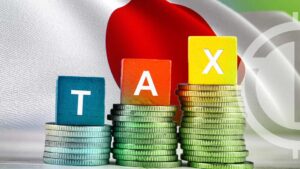
South Korea’s People Power Party has proposed a significant delay in the implementation of cryptocurrency gains taxation, aiming to push back the enforcement from January 2025 to January 2028. This move comes amidst ongoing deliberations within the country’s legislative bodies regarding the taxation of digital assets, reflecting a response to investor concerns and market dynamics.
Initially slated to take effect in 2021, the introduction of a 20% tax on crypto gains has faced multiple postponements, primarily due to vehement opposition from investors and industry experts alike.
The latest proposed delay, spearheaded by the right-wing political party aligned with President Yoon Suk-yeol, underscores a strategic retreat amidst current negative sentiment towards crypto investments.
The investor sentiment for crypto is negative at the moment, as stated in the bill’s description on the South Korean National Assembly’s website. The proposal anticipates a potential exodus from the market should stringent tax measures be prematurely imposed on an asset class known for its volatility and higher risk profile compared to traditional stocks.
South Korea, known for hosting one of the world’s largest and most active cryptocurrency markets, has seen a significant adoption rate among its population. Approximately 6.5 million citizens, constituting about 12.5% of the country’s populace, engaged in crypto transactions as of last year, according to data from the Financial Services Commission.
Leading South Korean Crypto Platforms Set to Review Token Listings Amid New RegulationsNotably, the Korean won has surpassed the U.S. dollar as the most used fiat currency for crypto trading in the first quarter of 2024, underlining the nation’s pivotal role in global crypto dynamics.
As per reporter Colin Wu, the Ministry of Economy and Finance has clarified that no final decision has been reached regarding additional delays in the crypto tax implementation.
An announcement on the proposed amendments to the tax code is expected by the end of this month, which will shed light on the government’s stance amidst the evolving landscape of digital asset regulation.














